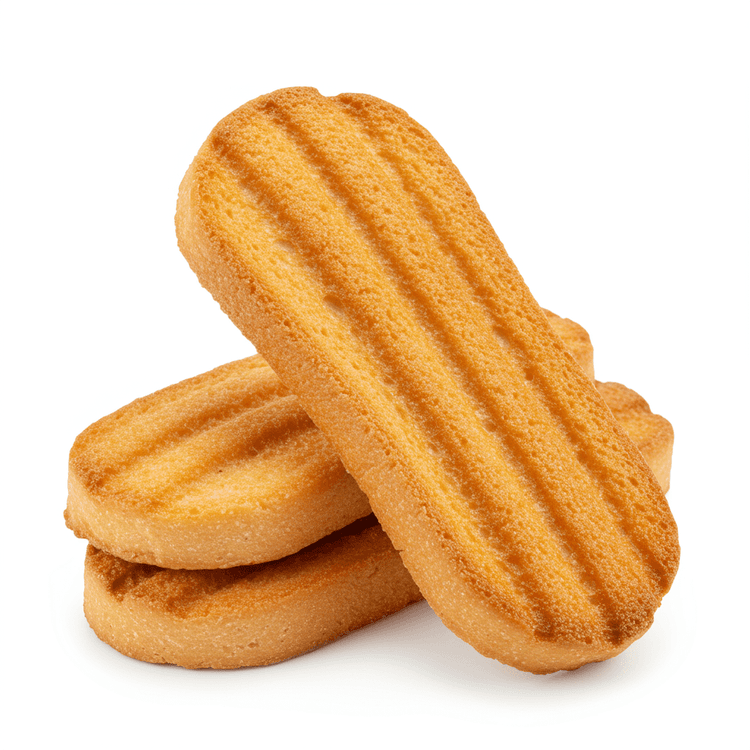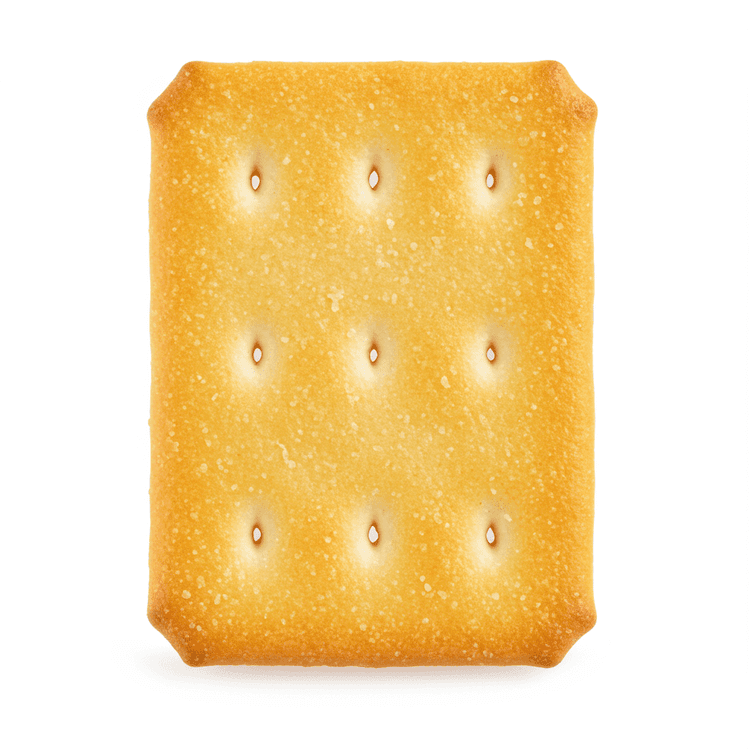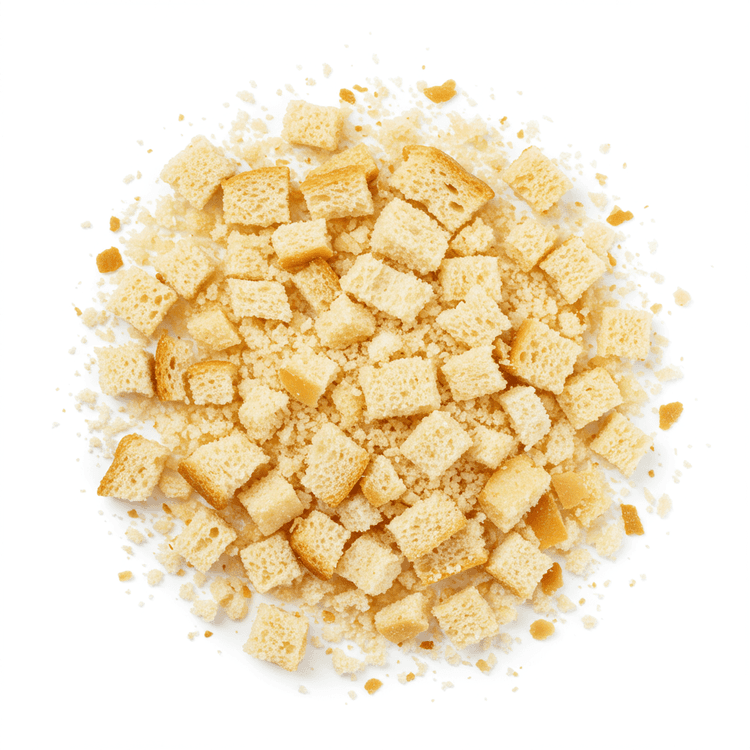
Rusk
Rusk is a hard, dry twice-baked bread or biscuit. Its texture is very dry and crunchy, often used as a base for desserts or as a crispbread substitute. The flavor is typically mild and slightly sweet, similar to a plain biscuit or cracker. Appearance-wise, rusk is generally golden-brown or light brown, often rectangular or oblong in shape and can sometimes have a slightly rough or porous surface. Many people enjoy rusk as baby food, a teething snack or a light meal addition.
Common Uses
- Rusk is commonly used as a teething biscuit for babies, providing a safe and edible material for them to chew on, helping to soothe their gums.
- Rusk can be crushed and used as a base for desserts like cheesecakes or tarts, providing a crunchy texture and subtle flavor.
- Rusk serves as a crispy bread substitute, perfect for dipping in soups, spreads, or enjoying with cheese. It is a great option to enjoy as a dry snack.
- Rusk can be ground into breadcrumbs and used as a coating for fried foods like chicken or fish, adding a crispy and flavorful texture. It works very well instead of breadcrumbs.
- Many people like to enjoy rusk dipped in tea or coffee, the rusk softens up while still holding its form, offering a delightful textural contrast.
- Some chefs use ground rusk as a thickening agent in sauces and stews, adding a subtle nutty flavor and enhancing the overall consistency.
Nutrition (per serving)
Nutrition (per serving)
Calories
407.0kcal (20.35%)
Protein
10.7g (21.4%)
Carbs
72.0g (26.18%)
Sugars
11.4g (22.8%)
Healthy Fat
4.1g
Unhealthy Fat
2.0g
% Daily Value based on a 2000 calorie diet
Nutrition (per serving)
Calories
407.0kcal (20.35%)
Protein
10.7g (21.4%)
Carbs
72.0g (26.18%)
Sugars
11.4g (22.8%)
Healthy Fat
4.1g
Unhealthy Fat
2.0g
% Daily Value based on a 2000 calorie diet
Health Benefits
- Provides carbohydrates for energy to fuel daily activities.
- Source of iron, which is essential for red blood cell production and oxygen transport.
- Some rusks are fortified with vitamins and minerals, enhancing their nutritional profile.
- Offers a low-fat alternative to some other baked goods, depending on the recipe.
- The hard texture can promote chewing, which may aid digestion.
Substitutes
Chefadora AI is here.
Experience smarter, stress-free cooking.
Storage Tips
Store rusks in an airtight container at room temperature, away from direct sunlight and moisture. Properly stored, rusks can maintain their quality for several weeks. Ensure the container is sealed tightly after each use to prevent them from becoming stale or absorbing odors. If you live in a humid environment, consider adding a desiccant packet to the container to absorb excess moisture and prolong shelf life.
Marnirni-apinthi Building, Lot Fourteen,
North Terrace, Adelaide, South Australia, 5000
Australia




